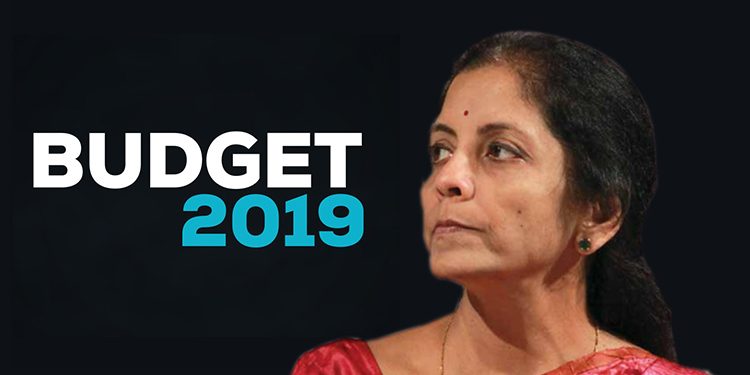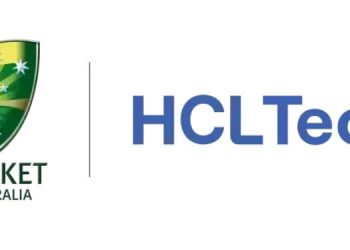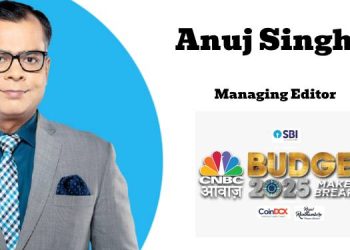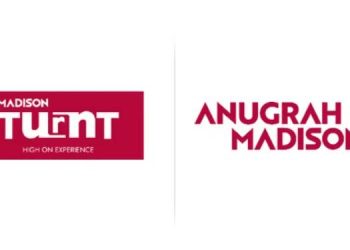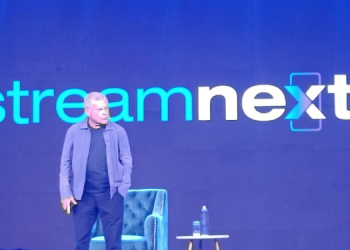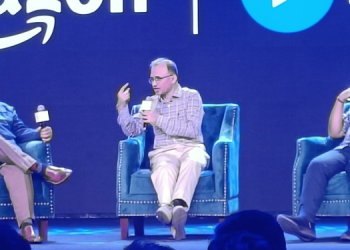On Friday the 5th July, the nation will be glued to their television sets to see what’s in store from Finance Minister, Nirmala Sitharaman’s maiden Union Budget.
Here are a few expectations from the upcoming budget from some experts in the industry.
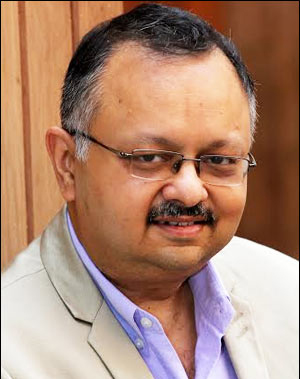
Partho Dasgupta
Batted for promoting investments and exemptions for RD in the sector, Partho Dasgupta, CEO, BARC India said,“Over the recent years, the broadcast sector has been experiencing dynamic changes. It has also become an aspirational sector for the youth of this country. Given the nature of the changes and the rising digitisation, we hope the investments by the Government will not only result in creating jobs in the M&E sector but will also boost long-term growth for the industry which will also indirectly aide the social fabric of the economy. Additionally, being an insights company that works closely with Big Data, investments in R&D is an ongoing practice and therefore we are hopeful that provisions for exemptions are made since it will also fuel growth across the sector.”
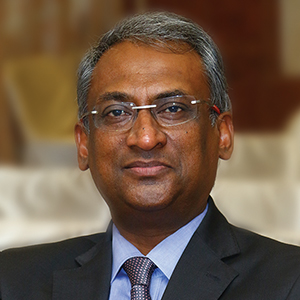
Placing his expectations for a Business growth-oriented budget N. Chandramouli, CEO, TRA Research said, “This presentation of the budget seems to have struck the right chord, with the fine stability between growth orientation and business sector visions after such a thrilling victory, should be a bold, Business growth-oriented one. Currently, businesses are highly emphasized and business growth moves have to be made by the government to improve overall GDP. The focus areas must be those that show direct and immediate impact in the micro and macro economy. More cash in the hands of masses will increase consumption and also augur savings, infusing more cash into the economy.”

Asking for streamlining inthe existing GST structure Himanshu Gander-Director of Corporate Center, The Minimalist said,“We believe the existing GST structure needs to be streamlined to quite an extent. MSMEs face a lot of challenges and are generally in need of a good cash-flow to achieve their growth targets. Irregular input on the GST makes things a little tight for them.
As an organization which heavily focuses on providing design and digital services, we are definitely looking forward to some additional budget being allocated by the government to improve the digital infrastructure of the economy. A robust digital structure is a need of the hour”.

Puneet Singhvi – Digital & Corporate Strategy, Network18 Said “Puneet as the President – Digital & Corporate Strategy, Network18 oversees Investments, M&As, Partnerships, Strategic Alliances and Business Development across all media platforms (Television, Telecom, Digital and Offline) within the Group. Puneet also leads digital strategy and is part of the team that evaluates and drives investment and alliance initiatives across technology and digital domain. Erstwhile, he has served as COO of Times Global Partners where he was responsible for overall strategy and growth.”

Asheesh Chatterjee
Asheesh Chatterjee, CFO, RBNL said “We are expecting a reduction in the GST rates for radio broadcasts that are in line with print from the government, since radio is a free-to-air medium,. Also, given that there will be future auctions in phase 3, the customs duty on some of the imported equipment, that is required for radio broadcast. These instruments are long term investments for better infrastructure and are getting deployed in the hinder lands because that’s where the subsequent auctions will take place. In addition to that, we would also welcome the government taking active steps in creating more jobs and providing momentum to ailing sectors.”

Posing her optimism towards the upcoming budget, Aanchal Arora, Founder, 1702 Digital said, “The Interim Budget came at a point when we were waiting for two of the most anticipated occasion – The 2019 General Elections and the ICC Cricket World Cup. Whilst promising the inclusion of AI, and the expansion of Digital India, the past Government had spent nearly Rs. 5,245 CR on digital marketing and print media in the span of 5 years. The Interim Budget was largely lauded as being pro-growth and inspirational. However, a huge shift was also observed towards privatization. This seems promising for the A&M industry.”

Demanding a Budget that boosts the start-up revolution Shrenik Gandhi, Chief Executive Officer and Co-Founder, White Rivers Media
The world stands at the brink of the Fourth Industrial Revolution and India can spearhead Industry 4.0 globally. The growing emphasis placed on technological disruptors like AI, IoT, robotics, and machine learning in the Interim Budget bears testimony to the same and the entrepreneurial ecosystem of the country will play a pivotal role.
As Finance Minister, Nirmala Sitharaman readies for her maiden budget, the answer’s to BJP’s promises of boosting the start-up revolution further by setting up 50,000 start-ups by 2024 are hence much awaited. With the right mix of accelerators like reforms in existing regulatory frameworks, simplified tax structures, and start-up schemes, India can lead the 4IR, while simultaneously enhancing the quality and sustainability of its own growth.”

Placing his demand for incentivizing tech companies, Kuldeep Chaudhary, Chief Executive Officer, ADOHM said, “India already experiences a complete change in the way online advertising impacts every business and its government. Therefore, I believe that the presence of technologies based on Artificial Intelligence can further increase the interaction between consumers and companies. Thinking about it, I would say that the government’s action on the economic and fiscal incentive for technology companies is fundamental. On this account, the advertising industry is capable of fostering the growth of other sectors, and they are interconnected.
Regarding the 2019 Budget, I hope to see an increase in incentives for the national program in Artificial Intelligence, at the same time an increase of points of Wi-Fi connection, making possible to bring new users, then customers, to Indian companies. Also, discuss Angel tax provisions in order to bring transparency into the Angel Funding process, something very important for Startups, like us.”

Putting his expectation from govt on health, wellness and F&B space, Navneet Singh, VP Asia Pacific, PureCircle – company that owns Stevia Natural Sweetener said, “With New Government’s vision of Ayushman Bharat and doubling farmer’s income, we expect Union Budget 2019 to introduce supportive reforms and policies to promote the promising health, wellness and F&B space in the country.
We seek more support from the government to give a fair chance to healthy innovations taking place in the Food and Beverage space that can disrupt farmer’s income, consumer health, and environment at large.
Stevia as a zero calorie natural sweetener has a huge potential to create healthier low/no calorie Indian Food and Beverage products. It can also become a big relief and income multiplier to the sugar cane farmers who are struggling for alternate income sources. Stevia is taxed at 0% in Canada, USA, and Indonesia but in India, it is being taxed 18% under the category of glycosides while sugar is under 5% GST.
We look forward to seeing more GST redemption for Stevia natural sweeteners, R&D infrastructure for Stevia, favorable policies and budget allotment for Stevia cultivation, to promote and support F&B industry in disrupting healthy food and beverage products for consumers.”
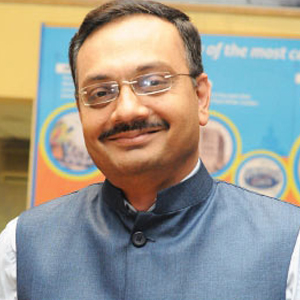
With his optimism towards the growth of travel and tourism industry Mahesh Iyer, Executive Director and Chief Executive Officer, Thomas Cook India said, “The travel and tourism industry is a crucial contributor to the growth of the Indian economy with a powerful multiplier impact on employment generation and we are hence confident that the Union Budget introduced by the government will strengthen the industry with continuity of its tourism friendly policies to give fillip to India’s Inbound, Domestic and MICE segments. We look forward to increased focus and sustained delivery on key initiatives like UDAN aimed at enhancing the regional connectivity and affordable air travel, Heritage City Development and Augmentation Yojana (HRIDAY), integrated development of pilgrimage destinations through Pilgrimage Rejuvenation and Spirituality Augmentation Drive (PRASAD), increased allocation towards enhancement of the e-Visa initiative to include additional countries, development of new tourism circuits and attractions, along with increased focus on infrastructure – roads, railways, airports, waterways and sanitation to catalyze growth.
Our wish list also includes clarifying the issue of Air Travel Agent being subject to Tax Collection at Source. The amendment of the proviso to section 16(2) in claiming input tax credit on the tax charged by the airline will also help in providing for the specific scenario of payment made by corporates or registered passengers to a travel operator. And finally by focusing on Corporate Tax for the FY 2019-20, we look forward to a reduced corporate tax structure of 25% across the board.”

Damding improvement in infrastructure that supports disruptive technologies Rajarshi Bhattacharyya, Country Manager, SUSE India said, “The interim budget in early 2019 rightly focused on digital transformation and the need to enhance technologies such as IoT, AI, ML, Robotics across key sectors like Manufacturing, BFSI, healthcare. With the upcoming budget, the Government with its ‘Digital India’ vision should look to pushing reforms on digital innovation and creating policy frameworks that encourage MSMEs in India to invest in deep tech locally. First steps the Government needs to take is to improve infrastructure that supports disruptive technologies and enable companies like SUSE to align strategies in sync with ‘Digital India’. With a little encouragement from the policy makers by making regulatory compliance policies more friendly, there is potential to boost India’s digital footprint and innovation journey.”

